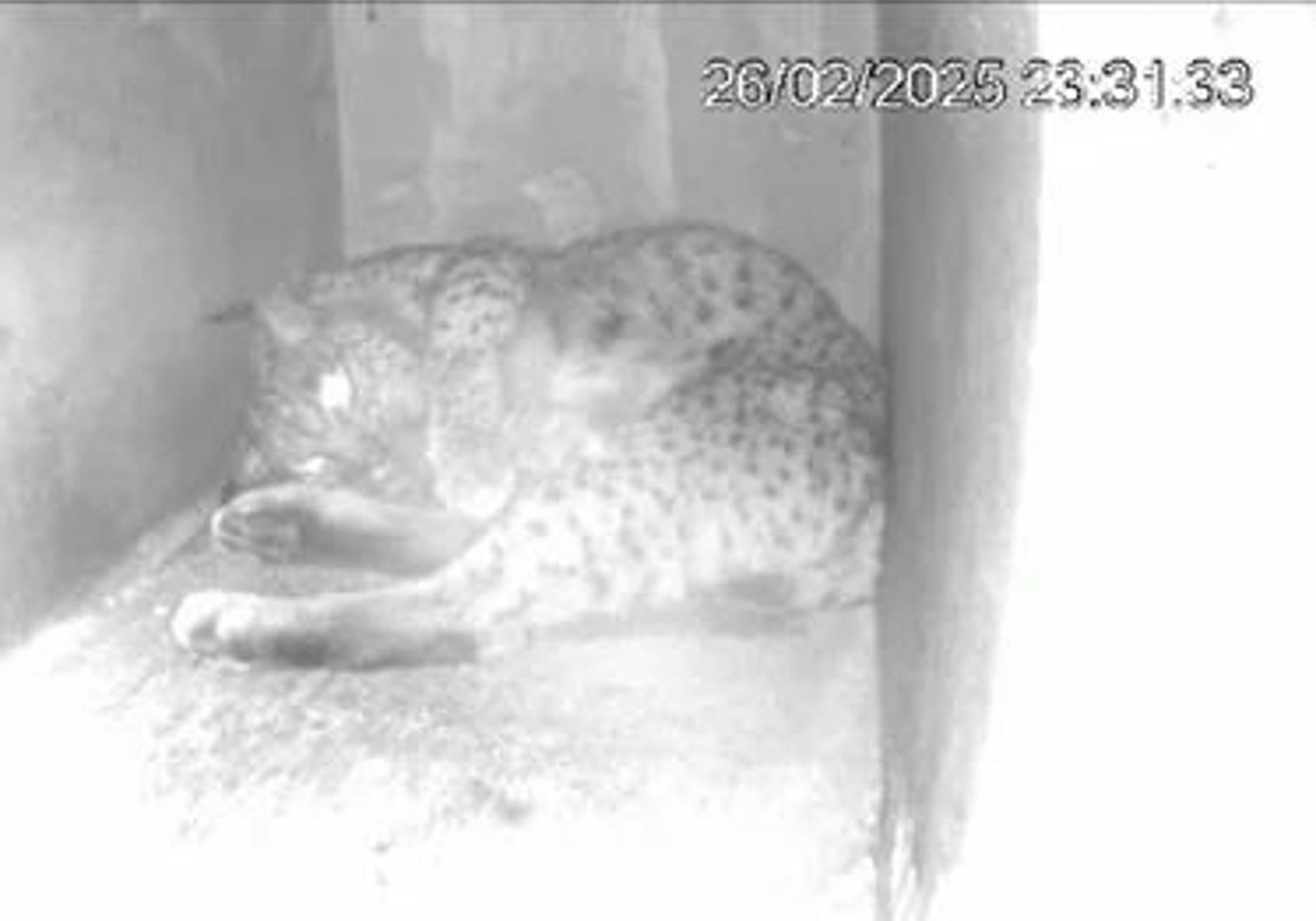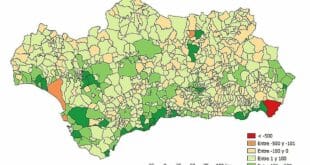Monday, 3 March 20, 19:27
The first birth of the Iberian lynx’s breeding season was recorded at the captive breeding centre in Zarza de Granadilla (Cáceres) on Wednesday 26 February. Hubara gave birth at 7.44pm to a single kitten in her den after a 65-day gestation. According to a press release issued by Spain’s Ministry for Ecological Transition, the birth marks the start of a breeding period “which should be promising”.
The birth was smooth and the mother takes care of the kitten that she conceived with Hocico, a male lynx. “Hubara never left the kitten’s bedside, giving it all the care it needs, from nursing and grooming it to keeping it warm. Miteco stated that both the centre’s veterinary team and its technical team are closely monitoring their progress.
Hubara, in her den, at the time of giving birth in the captive breeding centre of Zarza de Granadilla (Cáceres).
R.C.

The captive breeding centres for the Iberian lynx have a crucial role to play in the conservation programme ‘ex situ,’ which monitors species away from their natural habitat. The centre was instrumental in the recovery and survival of this endangered species. During the current breeding season, 14 of the 31 pairs in the programme are in the two centres managed by the OAPN (the natural parks’ organisation): El Acebuche (Huelva) and Zarza de Granadilla (Cáceres).
The facilities must have the right conditions to breed captive animals, including a space that mimics their natural habitat. They should also follow minimal intervention protocols in order to avoid the cubs becoming habituated to people.
More than 2 thousand individuals
The International Union for Conservation of Nature’s (IUCN) Red List has reclassified the Iberian Lynx from “endangered to “vulnerable”. The species requires active conservation measures.
Since the beginning of the programme, captive-born cats have played a vital role. Many of them have been released in strategic areas of Andalucía, Castilla-La Mancha, Castilla y León, Extremadura and Portugal, contributing to population growth and increasing the genetic diversity of the species.
In the coming months, more births will be expected at the breeding centres. This will confirm the effectiveness of this programme to consolidate the recovery of Iberian Lynx.
In 2023 the total lynx count will be 2,021 with 1,299 adult or sub-adults as well as 722 cubs. In just three short years, after exceeding 1,000 specimens in 2010, the Iberian Lynx population has more than doubled.
 Costa News Spain Breaking News | English News in Spain.
Costa News Spain Breaking News | English News in Spain.







